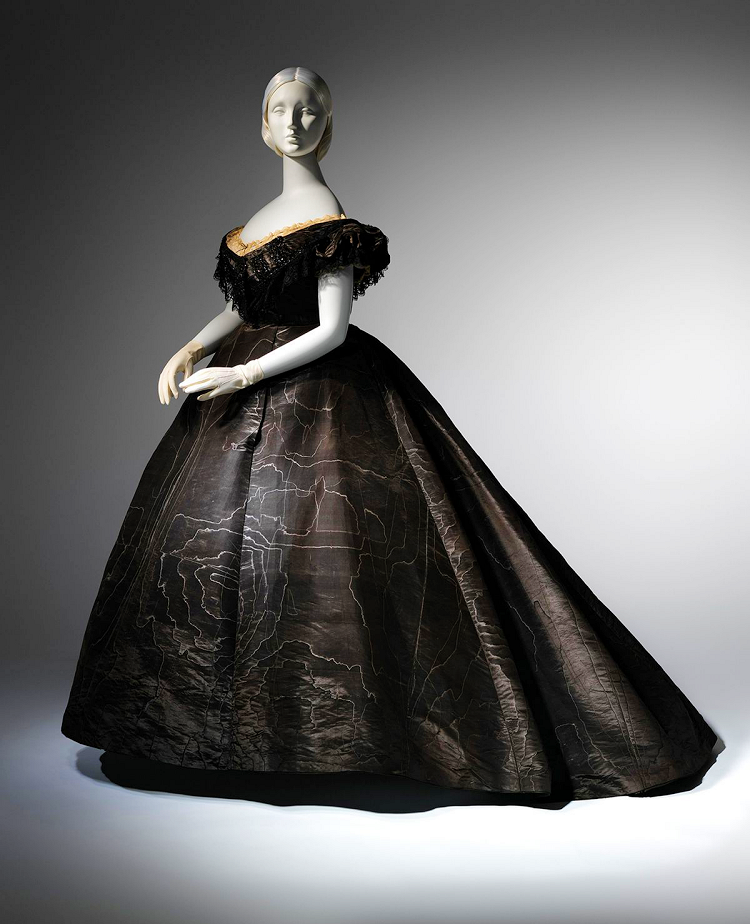The iconic crinoline - the "cage" crinoline or hoop skirt - which made it's debut in the 1850s, reached the zenith of its real estate in the first years of the next decade. The shape of the thing would gradually shift toward the back during the following few years, before completely disappearing at the beginning of the new decade; the "business at the back" we see so much of here, became the the bustle, the look of the 1870s. Ironically, the cage crinoline's final collapse fairly coincided with the fall of Imperial France, a period in which Paris fashion put down, once and for all, any dissent that it might be anything but the last word in les modes des dames, a certainty that would go unchallenged until World War II.
 |
| Front view of the above. |
I should note than most of these gowns were photographed without the full degree of structural support they were designed to employ. While it can certainly be argued that the folds of beautiful yardage draping and trailing on the ground are very graceful, many of these examples were originally worn with a crinoline so large that it filled out the skirt of the gown, eliminating much - sometimes nearly all - of the lovely excess of fabric we see here.
 |
| Front view of the above. |
 |
| Back view of the above, but with a different bodice. Gowns were frequently made with two different bodices, one for day wear, one for evening wear. |
 |
| Front view of the above. |
 |
| A girl's formal wear. |
 |
| Front view of the above. |
 |
| Front view of the above. |
 |
| Back view of the above. |




















































Some of them are somewhat shockingly colored. New dyes?
ReplyDeleteDefinitely!
DeleteTruly amazing!
ReplyDeleteBeautiful work!
ReplyDelete